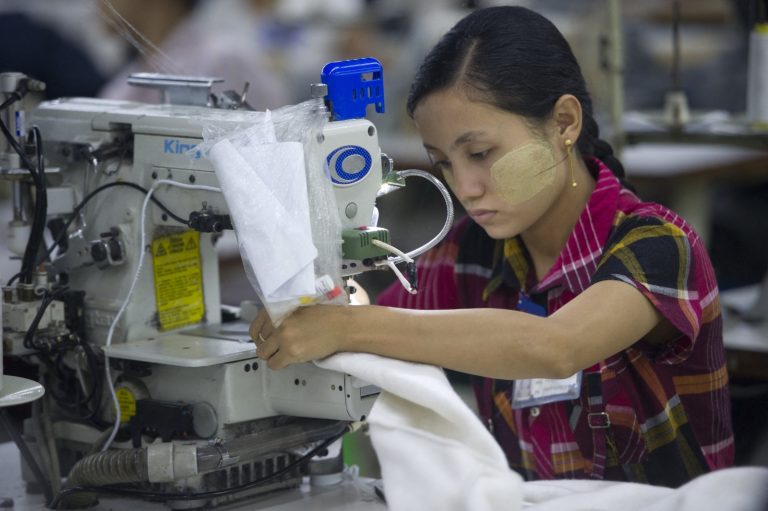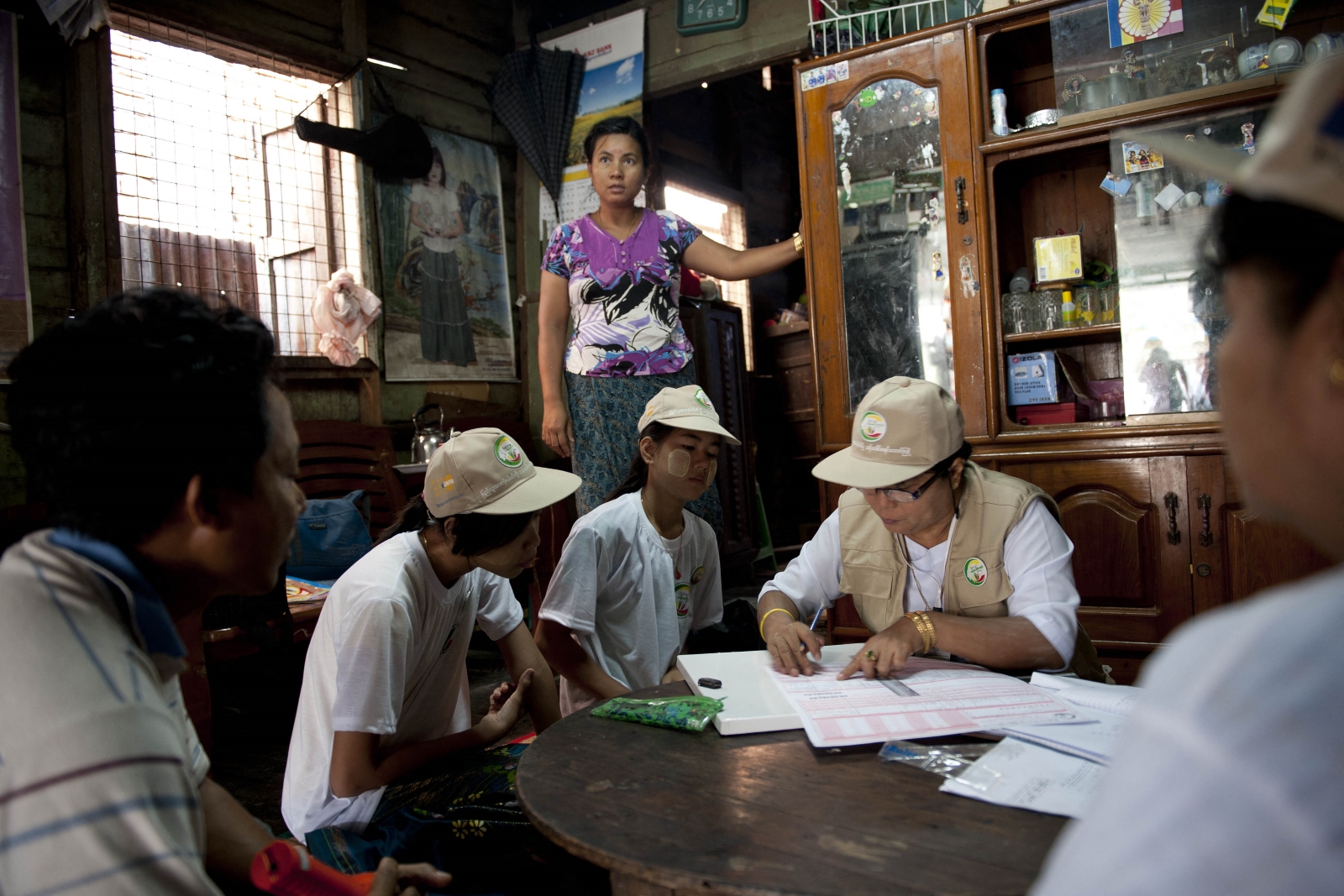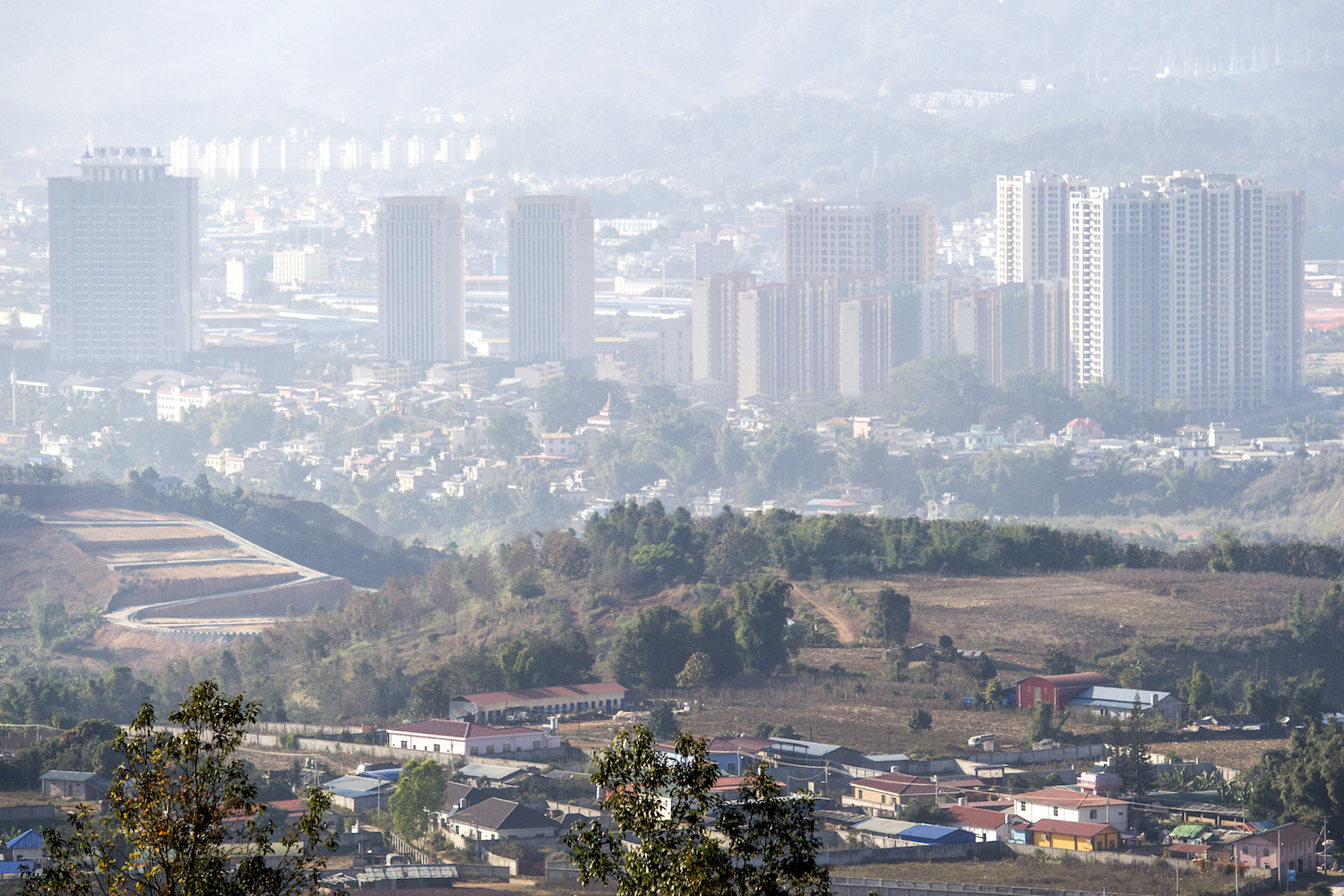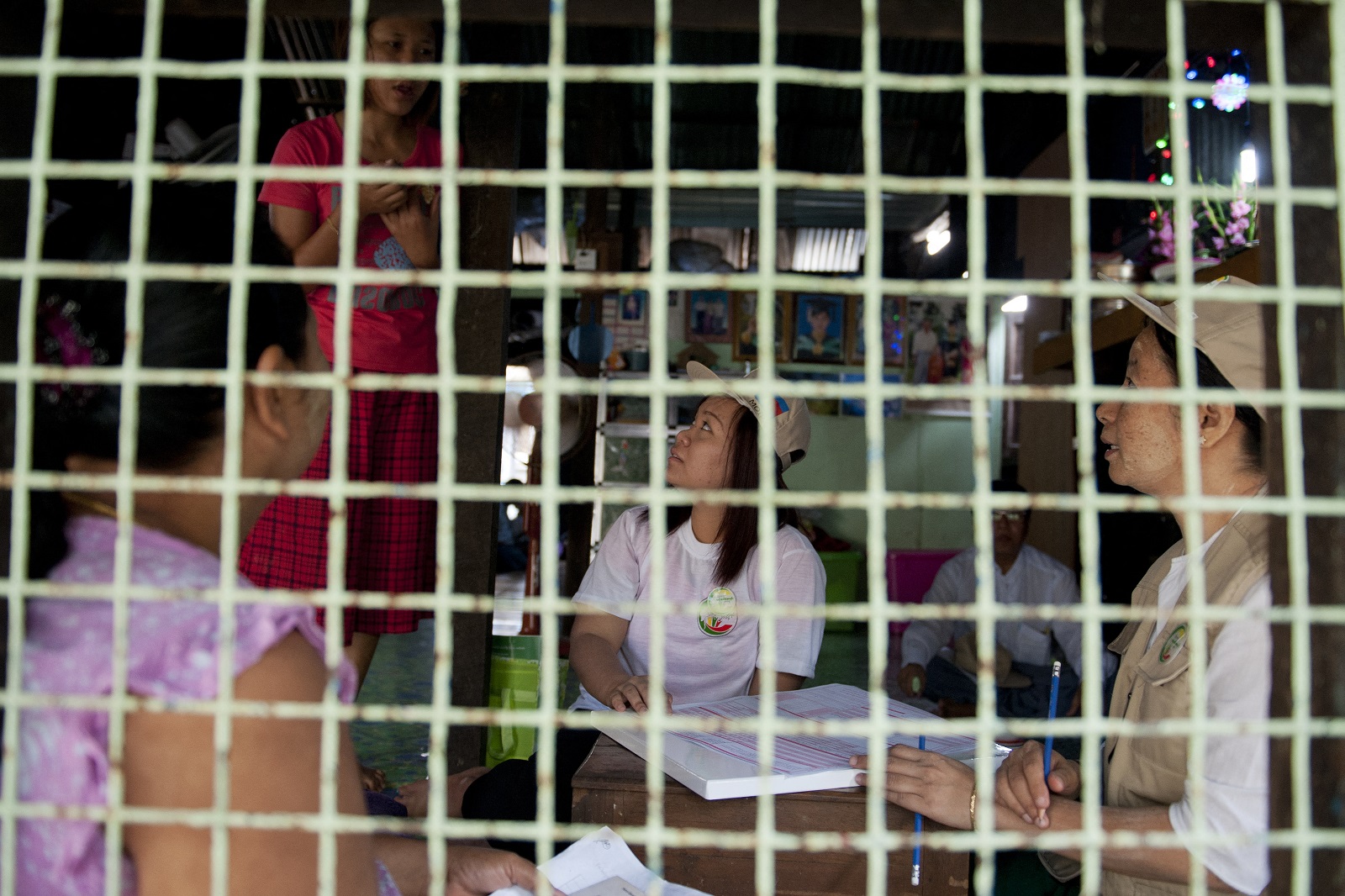Time is a precious commodity for Ko Nyi Nyi, the executive committee chairman of the National League for Democracy’s branch in Yangon’s outer South Dagon Township.
By HANS HULST | FRONTIER
Photos JEROEN de BAKKER

The NLD’s Ko Nyi Nyi wants development for South Dagon Township and a seat in the Amyotha Hluttaw. (Jeroen de Bakker / Frontier)
As I waited for our interview at a small school he established, where children are taught to use a computer, the politician bustled into the room. He was returning from the site of a land dispute, a mile down the road.
“The situation is tense,” Ko Nyi Nyi said. “Some crony businessmen are trying to turn a strip of farmland into a profitable development. It seems they are being helped by officials. The riot police were about to step in. I talked to the township administrator and the ward administrator about the land grab. As a result the police are now trying to find a peaceful solution. They have to hurry up, because the farmers want to take the land back by force. They are holding metal and bamboo sticks. It could easily escalate.”
Ko Nyi Nyi was born in Yangon’s Bahan Township in 1976. His parents owned a noodle factory and the family was fairly affluent. After the 1988 national uprising against military rule was crushed, the circumstances of the politically active family changed drastically.
Support more independent journalism like this. Sign up to be a Frontier member.
“I was in middle school at the time,” said Ko Nyi Nyi. “Of course we protested the junta. I still get goose bumps thinking about it. I was also involved in Red Star, a political movement in my neighbourhood. Many small organisations blossomed all around Yangon. Most of them disappeared again after the summer of protest. I didn’t know what democracy was, but the daughter of Bogyoke Aung San made it clear what I had to do.”

Under the watchful eye of guitar hero Jimi Hendrix, Ko Nyi Nyi records one of his revolutionary political songs. “We proudced five albums already, and we never send them to the censors first for checking.” (Jeroen de Bakker / Frontier)
The young student flirted with death several times. One day a truck carrying soldiers travelled down Garden Road, where he lived. “We weren’t protesting and I didn’t notice it. Then the soldiers in the truck aimed and opened fire. I only heard the sound of the bullets and saw the holes in the wall. Downtown at political rallies the shooting never seemed to stop.”
Ko Nyi Nyi’s brother was arrested and never heard of again. After a new generation of generals seized power on September 18, 1988, Ko Nyi Nyi and his family were forced by the junta to resettle in South Dagon. Their noodle factory was confiscated.
South Dagon, a township of about 800,000 people and one of the poorest in Yangon, was in much worse shape than it is now.
“The road was very bad. There were no trees. It was like in the movies, a bad refugee area. It was not where we belonged. Even animals did not deserve to live in a place like that,” Ko Nyi Nyi said.
South Dagon remains a grim environment. Infrastructure, healthcare and education are basic at best. “But the most important thing we need are jobs,” said Ko Nyi Nyi. “So many people are out of work here, especially our youth. They sit in beer bars and teashops, and go to clubs. They do drugs. They are stuck, because they don’t have any opportunities. This is the fault of the old regime. We need to do something, because our youth are the future of Myanmar.”
Ko Nyi Nyi is a founder of a civil society organisation called the Blood Group. He quips that the abbreviation of its name does not stand for brigadier-general. Since 2011, the Blood Group has been striving to raise education and healthcare standards in seven of the country’s 14 states and regions, and in ten Yangon townships, including South Dagon.

Ko Nyi Nyi still owns a barber shop in South Dagon, but he rarely gets to cut hair these days. (Jeroen de Bakker / Frontier)
In early 2014 Ko Nyi Nyi helped negotiate a deal between striking workers and the management of the German-owned Hercules garment factory, which he said was paying its overworked employees K1,500 a day. “I get around 700 cases per year and solve about 600.”
Yangon City Development Committee does not do enough to improve infrastructure and services in South Dagon, Ko Ko Nyi said. The committee, led by former army men, refuses to take responsibility and is not transparent about how it spends its money.
In the November 8 election. Ko Nyi Nyi hopes to run for a seat in the Amyotha Hluttaw (Upper House). One of the reasons he is seeking office is because, if elected, he wants to create more jobs in South Dagon.
“If I am elected in the hluttaw I can do ten times more. If I can develop a hundred, I can develop a thousand children as well,” he said.
Nonetheless, money remains a problem. BG can hardly get by, and the NLD is struggling to get its finances together for the November 8 general election. The main opposition party is trying to make ends meet by selling NLD souvenirs: T-shirts, Daw Aung San Suu Kyi calendars, umbrellas and books. Some businesspeople and NLD members living abroad have donated money, Ko Nyi Nyi said, but it was mostly for the party’s health and education activities.
“For the ruling USDP [Union Solidarity and Development Party] everything is taken care of,” he said. “Even the office space is free. But for us just to get office space, we have many hurdles to overcome. The NLD leaders are very strong. They had to forego their family and their personal well being.”
Times have changed, but not quite.
“The USDP is bad,” Ko Nyi Nyi said. “They hit us and we had to run, and they still try to give us trouble. But not like before; they do it incognito. For example, when I give a speech they have people at proxy organisations who will give us trouble. But if they truly want to work for the good of the country, we are willing to cooperate. But I don’t believe they will change,” he said.
Ko Nyi Nyi suffered deeply when his family was relocated and his brother disappeared. In 2000 he was jailed by the ruling junta for four months for political activities. He tries to assuage his anger with forward-looking thoughts about the next generation. But the driven politician still finds it hard to forget.
“To tell you the truth,” he said. “The former military government that tortured the people, of which Thein Sein, Shwe Mann and Maung Aye were members, will one day get what they deserve. Unfair laws that protect them will disappear. It might take time. Do you remember Adolf Eichmann? This Nazi-official was tracked down and arrested decades after the World War II. He was tried. The military government has done so many bad things. The NLD is forgiving the generals, for the benefit of the country. Whether the Myanmar people are satisfied by that remains to be seen.”
As for his political career, Ko Nyi Nyi cannot imagine a time when he will not be on a soapbox trying to change his country. “When I will stop? Never. I will be politically active until I am 80 or 90, probably until my body can not work anymore.”






